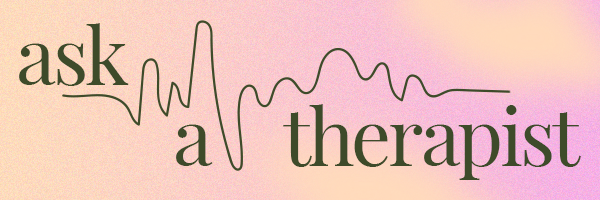Ask A Therapist: I’m 29 & I’ve Never Dated. How Do I Break The Cycle?
Photographed by Leia Morrison.
Ever wondered what you'd say to a therapist, given the chance? We asked Dr Sheri Jacobson, a retired psychotherapist with over 17 years' clinical experience and the founder of Harley Therapy, for advice on the things we worry about in private.
Question:
I have never been in a relationship before and never dated, even in high school. Some of my friends, cousins and my sister are married and I feel like I want that moment too but they tell me that being married is a commitment. They think I will never commit and want me to stay single.
I have moments where I know I don’t want to be single forever. Sadly I am almost 30 and fear that Mr Right will never come. My biggest turn-offs would be someone who has really bad body odour and has a bad temper. What can I do to not fear the worst?
AdvertisementADVERTISEMENT
Maya, 29
Answer:
Let's talk about dating first and your perspective on it. When it comes to approaching, arranging and going on dates, I recommend starting from a vantage point of self-compassion: take your time and be lenient, both with yourself and your expectations for the other person. The more that you can go with the flow and not chase your belief of what dating should look like, the more you can tolerate disappointments and perhaps enjoy the more uplifting parts of it. You may say things that sound clumsy, you may not behave in the way that you'd hoped, you might fumble, stutter, not concentrate fully on what the person is saying because you're nervous… All of that is perfectly normal. The more self-compassionate we can be, the more relaxed we can be in a potentially stressful situation.
Then think about it as though you were advising a friend in this situation. Would you tell them that they've got to get everything perfect otherwise they're going to blow it? Would you tell them they're not good enough and that's going to show? Or would you lift them up and acknowledge that they may stumble a little bit and that shouldn't stop them?
It's clear the perspective of your family and friends is impacting you. No matter how hard we try, we can't control what other people say, how they behave and what they think. That can be hard to accept. But it doesn't mean it's a failing to be impacted by them. We don't live in a vacuum, we're sensitive creatures.
AdvertisementADVERTISEMENT
What we do have a little bit more control over is how we are impacted by their thoughts, feelings and behaviours. If our core beliefs about ourselves and our self-worth are strong enough, we can withstand the reactions of other people. If you believe "I am good enough", that will mean that you're less impacted by the reactions of others. Then you can acknowledge that they're entitled to their view but it shouldn't hold you back from what you want to work towards, regardless of what their responses are.
This is why the most important thing in this situation is for you to work out what you want, not what other people want for you. Therapy is a really good place for that. We can have that conversation on our own, which is important, but we can sometimes go around in circles a little bit if we don't have someone else in the dialogue. These philosophical as well as psychological questions are profound and won't have definitive answers but you can reach a sense of self-understanding over time by working through answers with a professional.
A big one for you would be working out your real relationship with marriage. What does marriage mean for you? What's so important to you about being married? Is it the formalising a strong bond element? Is it a status? Is it a security? Is it societal pressure, an expectation that you want to fulfil? While therapy is not the only answer, it is a very helpful process if one is able to access it.
AdvertisementADVERTISEMENT
'Fearing the worst' is an understandable response. But you can work on managing your anxiety about the future and being happy in your current situation at the same time. If we're able to be more content in the moment and take stock of what we do have, then our focus is not veering towards an unknown future. A good exercise is gratitude: doing it regularly often helps one's appreciation of the now. At the beginning or end of each day, think of three things that you're grateful for in general, and then three things that you're grateful for specifically within yourself. There's a lot of research that shows these exercises change so much with regards to our health, our wellbeing and our psychological state because we are deliberately focusing on what we have rather than what is lacking.
It's not about banishing anxiety but about managing it — focusing on the present with strategies like breathwork, meditation and mindfulness. When we're centred it makes it easier for us to appreciate what's around us and therefore understand what we might really want in the future.
Want more? Get Refinery29 Australia’s best stories delivered to your inbox each week. Sign up here!
AdvertisementADVERTISEMENT







